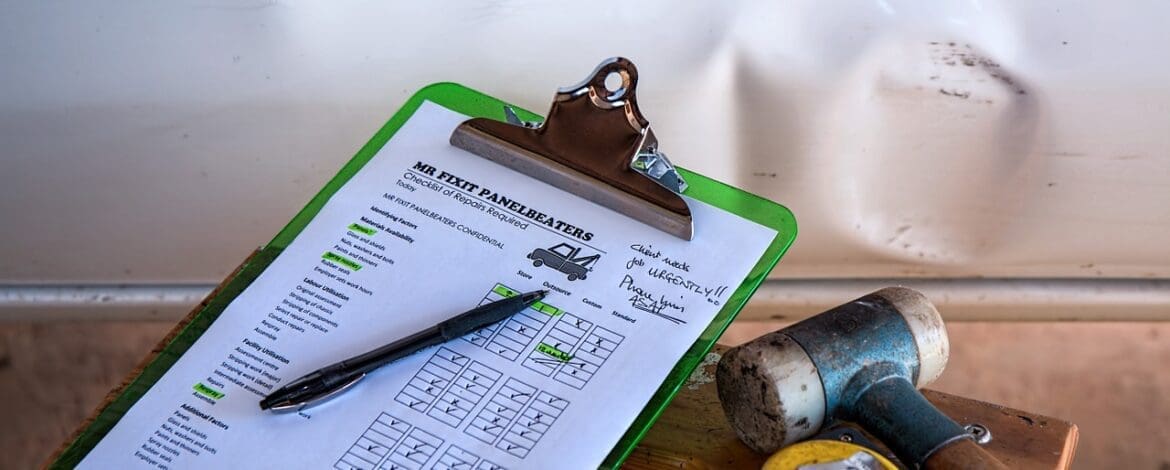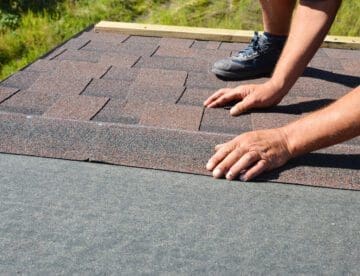Passing an annual roof inspection of your Tampa home is crucial for protecting your property from the havoc severe weather causes. The roof is one of the most important structures of your home. But in Florida, hurricanes, driving rain, and strong gusts of winds make it even more crucial to inspect a roof regularly.
A routine roof inspection will identify minor issues before they do extensive damage. For example, minor, seemingly insignificant damage like a broken shingle, faulty gutters, or rusted nails can soon become a major disaster in winds gusting over 150 mph.
There is another reason why your Tampa, FL home must pass a roof inspection — if you plan to sell the house. The prospective buyers will arrange a home inspection before signing the sale contract. If the inspector flags up issues with the roof, it could derail the sale. As a result, the buyers could request that you drop the price, or they may even pull out.
Are you concerned about the condition of your roof? Have you noticed signs of water damage in your home? If so, it is time to ensure your Tampa home passes a roof inspection.
Why Roof Inspections in Tampa Are Vital
Because homes in Tampa Bay, FL, are subject to extreme annual weather events, passing a roof inspection is necessary. In addition, a roof inspection is one of the factors in a “Four Point Inspection” for getting house insurance. A licensed inspector will check the roof covering for missing shingles, leakage, and signs of damage.
However, even if your home insurance doesn’t require a roof inspection, there is no use in ignoring it. Unfortunately, many homeowners only think about roof repairs when there is obvious damage. However, this usually means costly repairs like mitigating mold damage, repairing broken shingles, or replacing the entire roof.
To pass a roof inspection in Florida, home insurers check the following factors when completing a Roof Condition Certification Form:
- Roof age
- Overall condition
- Visible signs of damage
- Visible signs of leaks
- Any visible hazards
How to Pass Your Tampa Roof Inspection: 7 Top Tips
Roof inspections are essential for anyone living in Florida. Here are our top seven tips to make sure that you can identify minor issues before they become major ones. Would your roof pass an inspection? Please read on to find out.
1. Repair roof leaks before an inspection
The first step to pass a roof inspection is to repair leaks. Water damage leads to serious secondary problems like mold and rotted wood — both expensive to repair. Obvious signs of a leaking roof are brown patches on ceilings. If there are several rings, the roof has been leaking for a considerable time.
When inspecting the roof, go into the attic. Is there are stuffy, musty smell in the damp air? If so, it’s a sign that there is either a leak or the vents are faulty. Of course, noticing mold in the corners clearly shows that excess moisture is already a significant issue.
Suppose you notice signs that your roof is leaking. In that case, it’s time to call a professional roofing company in Tampa to remediate the damage.
2. Fix broken gutters and clean debris
To pass a roof inspection in Tampa Bay, you must ensure that gutters and downpipes function as they should. Problems with gutters could be caused by debris clogging them up. Or there could be cracks in the seals allowing water to drip out.
As part of your regular home maintenance, clear gutters to ensure water flows properly. It is also a good idea to run water from a hose in the gutter to check for any leaks.
3. Replace broken or missing shingles
Roof damage is common in Florida due to high winds, hurricanes, constant sunshine, and high humidity. Therefore, to pass a roof inspection, you must replace any missing, curled, buckled, or broken shingles. Even a slight crack in singles is enough to let water seep through and cause damage.
4. Inspect flashing around rooftop structures
To ensure your home’s roof gets through an inspection, check the flashings once a year and fix any leaks. Rubber or metal flashing or flashing cement around pipes stops water from entering the property through joints between the roof and the pipe. Humidity, UV radiation, and strong winds can cause cracks to appear in time.
5. Clean the roof surface
Another issue affecting the integrity of your roof structure is green clumps of plant growth. Moss and lichen grow in damp, shady locations. Therefore, you will often see plant growth on roofs constantly in the shade or face north. Unfortunately, this growth can impact seals, shingles, and flashings.
To pass a Tampa roof inspection, ensure no green matter is growing on the roof. This helps prevent plant growth and ensures that dampness and roots don’t damage your roof’s structure.
6. Repair rust spots or rusted nails
Florida’s high humidity and coastal location mean that metal fixings are prone to rust. During an inspection, look for rusted or loose nails and replace them as necessary. Even though they may still secure the structure, rusty nails and fixtures will easily break in strong winds.
If you have a sheet metal roof, checking for rusty spots should be part of your annual inspection. Metal roofs are common in Tampa because there are durable and last longer than asphalt shingles. In many cases, they withstand extreme weather conditions better. But for metals roofs to pass a roof inspection, they must be free from rust.
7. Check that roof vents function correctly
Roof vents are designed to let air circulate in your attic. Good airflow in the attic is essential to prevent an accumulation of moisture. Therefore, if the vents don’t work correctly, you may get mold and mildew in your attic. However, the problem with excess humidity in attics is that it can rot the roof structure from inside.
Passing Your Tampa Roof Inspection
Regular roof maintenance is the best way of ensuring that your roof passes an inspection. If you are selling your home, arranging for professionals to carry out a thorough inspection makes sense. Call us today at 813-373-9088 or fill out this easy online form. We provide certified roof inspections for the entire Tampa Bay area.




